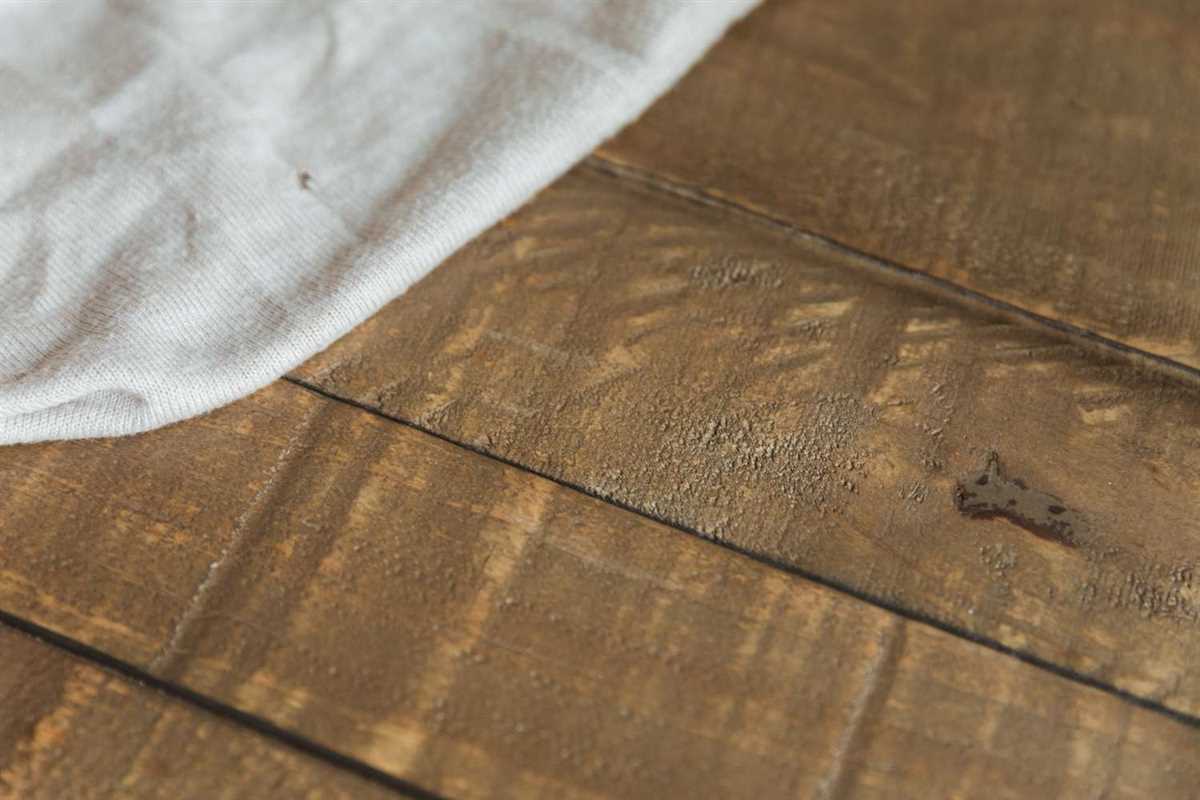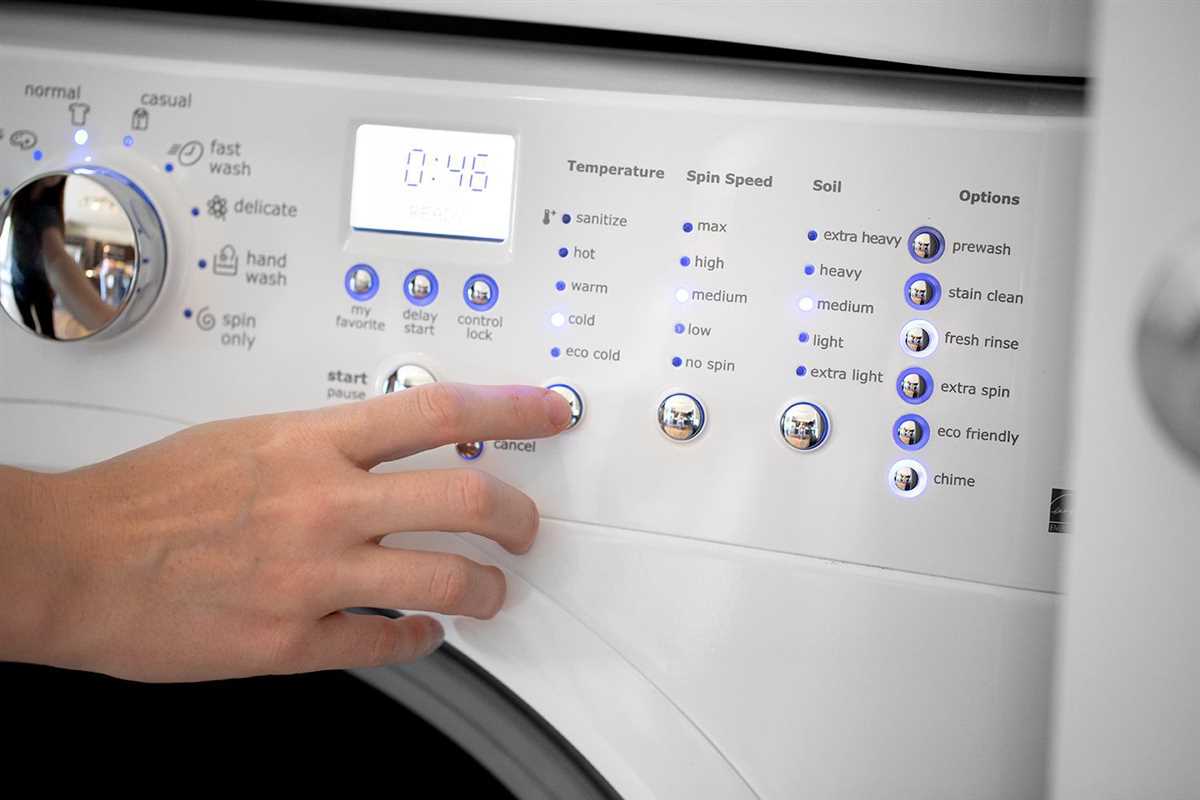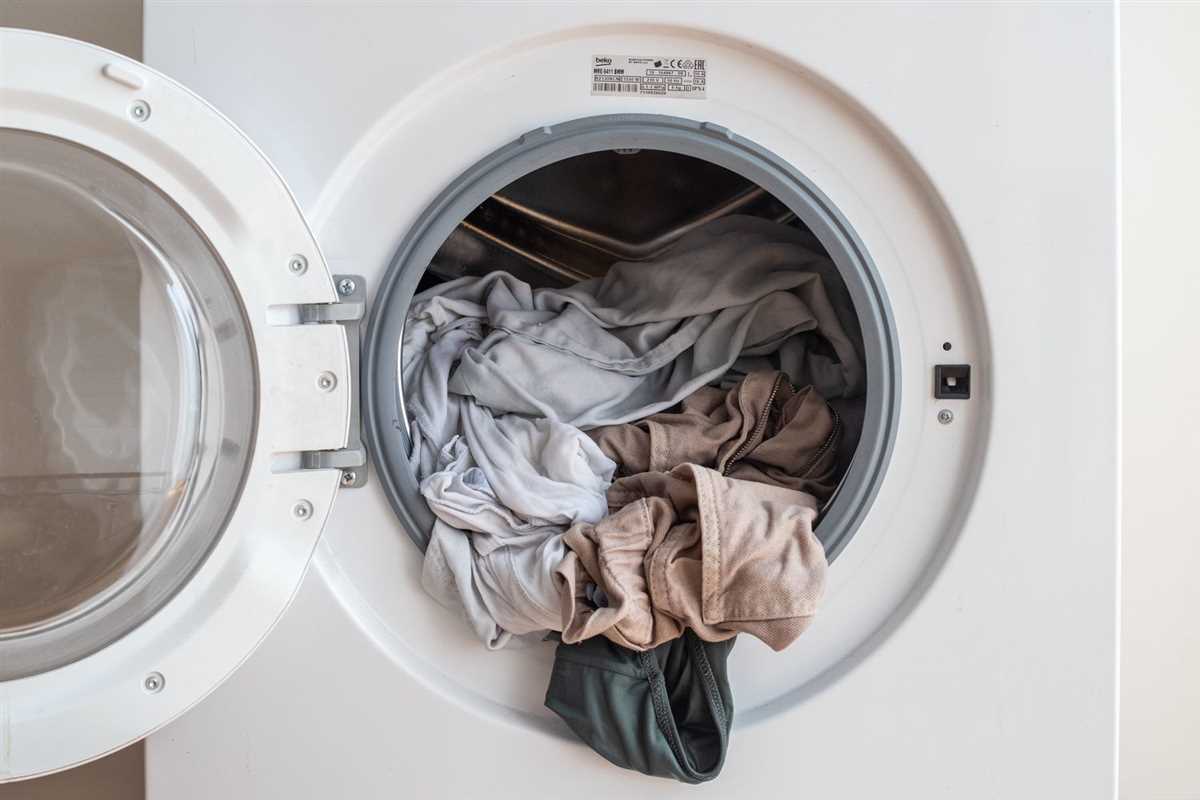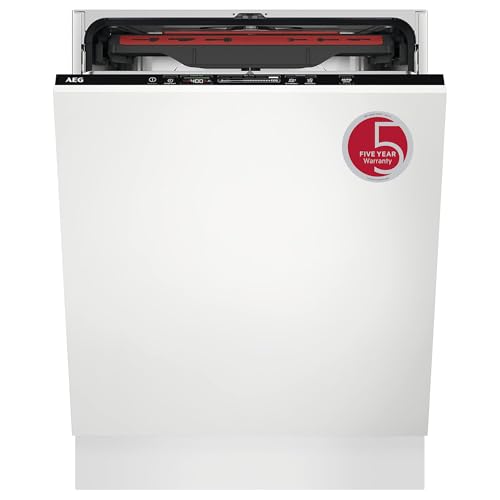




When it comes to doing laundry, nothing is more frustrating than discovering holes in your favorite shirts. But what causes these holes, and how can you prevent them? In this article, we will explore some common causes of holes in shirts and provide solutions to help you keep your clothes hole-free.
One of the most common causes of holes in shirts is friction. When clothes rub against each other during the washing process, it can lead to wear and tear, resulting in small holes. To minimize the amount of friction, it is important to sort your laundry properly. Separate items by fabric type, weight, and color. By washing similar items together, you can reduce the risk of clothes rubbing against each other and causing damage.
Another cause of holes in shirts is the presence of sharp objects in the washing machine. It is not uncommon for small items like zippers, buttons, or hooks to get stuck in the agitator or drum of the machine. As the clothes spin and agitate, these sharp objects can puncture the fabric, causing holes. To prevent this from happening, always double-check your pockets before tossing clothes into the machine. Remove any loose items that could potentially cause damage.
In addition to sorting your laundry and checking for sharp objects, it is also important to pay attention to the quality of your washing machine. Older machines with worn-out parts or faulty mechanisms can be more likely to cause damage to your clothes. If you notice that your machine is making strange noises or if your clothes consistently come out with holes, it may be time to consider replacing or repairing your machine.
Understanding the Problem

Before we can find a solution to prevent your washing machine from putting holes in your shirts, it’s important to understand the possible causes of this problem. Here, we will discuss some key factors that can contribute to shirt damage during the washing process.
1. Agitation and Friction
One of the main reasons your washing machine may be causing holes in your shirts is excessive agitation and friction. This occurs when the clothes are being tossed vigorously against the walls of the machine or agitator, causing abrasion and wear on the fabric.
2. Sharp Objects
Another factor that can lead to holes in shirts is the presence of sharp objects in the washing machine. These objects can include buttons, zippers, hooks, or any other metal or sharp items that can puncture or tear the fabric during the wash cycle.
3. Overloading
Overloading your washing machine with too many clothes at once can also contribute to shirt damage. When the machine is overloaded, there is less space for the clothes to move freely, which can lead to increased friction and agitation, resulting in holes or tears.
4. Poor Quality or Worn-out Washing Machine Parts
In some cases, the problem may lie with the washing machine itself. If the machine has worn-out or damaged parts, such as a rough drum surface or sharp edges, it can cause damage to the clothes during the washing process. Similarly, a poorly designed machine may have parts that trap clothes, causing them to get stuck and ultimately get torn or damaged.
5. Fabric Vulnerability

Some fabrics are inherently more vulnerable to damage than others. Delicate fabrics like silk or lace are more prone to tearing or developing holes, especially when subjected to excessive agitation or friction in the washing machine.
6. Incorrect Washing Machine Settings
Using the wrong washing machine settings, such as a high spin speed or a longer wash cycle, can also contribute to shirt damage. These settings can cause excessive tension or stress on the fabric, leading to holes or tears.
By understanding the possible causes of shirt damage in the washing machine, we can now move on to exploring solutions to prevent this problem and keep our shirts intact.
Causes of Holes in Shirts
- Sharp objects: One of the main causes of holes in shirts is sharp objects that come in contact with the fabric during the washing process. Items such as zippers, buttons, or even the washing machine drum itself can have sharp edges that can snag and tear the fabric.
- Incorrect washing machine settings: Using the wrong washing machine settings, such as selecting a cycle with high agitation or temperature, can also lead to holes in shirts. This is especially true for delicate fabrics that require more gentle treatment.
- Overloading the washing machine: Overloading the washing machine can put excessive stress on the clothes, causing them to rub against one another and create friction. This friction can lead to holes in shirts, particularly in areas where the fabric is thin or weakened.
- Long and sharp nails: If you have long and sharp nails, they can easily catch on the fabric while handling clothes during the washing process. This can result in small holes or snags in the shirts.
- Poor quality fabric: Shirts made from poor quality fabric are more susceptible to developing holes. Cheap or thin materials may not withstand the rigors of the washing machine, leading to tears or openings in the fabric.
Note: It’s important to remember that multiple factors can contribute to holes in shirts, and sometimes it may be a combination of these causes that leads to the damage. Taking preventive measures, such as inspecting garments for sharp objects and following proper washing instructions, can help minimize the occurrence of holes in shirts.
Common Fabric Vulnerabilities
1. Delicate Fabrics
Delicate fabrics such as silk, lace, chiffon, and satin are more prone to damage in the washing machine. These fabrics are easily torn or snagged by the machine’s agitator or other clothing items. To prevent holes in delicate fabrics, it is best to wash them separately using a gentle cycle or handwash them.
2. Thin or Worn-out Fabrics
Thin or worn-out fabrics are more likely to develop holes during the washing process. Over time, the constant rubbing and agitation against the machine’s drum can cause these fabrics to tear or develop weakened areas. To prevent this, it is advisable to mend any worn-out areas before washing and avoid washing thin fabrics with heavy or abrasive clothing items.
3. Sharp or Metal Accessories
Sharp or metal accessories such as zippers, hooks, buttons, or metal buttons can easily damage fabrics. These accessories can catch onto the fabric and cause tears or holes during the washing process. To prevent damage, it is recommended to close all zippers, fasten any hooks or buttons, and turn clothes with metal accessories inside out before washing.
4. Washing Machine Drums with Rough or Sharp Edges
Some washing machine drums have rough or sharp edges that can scrape or fray fabrics. This is more common in older or poorly maintained machines. To prevent damage, it is crucial to inspect the washing machine drum for any rough or sharp edges. If present, they should be smoothed or repaired to avoid fabric vulnerabilities.
5. Excessive Washing Machine Agitation

Excessive agitation or a high-speed spin cycle can put extra stress on fabrics, leading to holes or tears. To prevent this, it is recommended to choose a washing machine cycle with less agitation or reduce the spin speed. Additionally, avoiding overloading the machine can also help minimize fabric vulnerabilities.
6. Incorrect Loading and Sorting of Clothes
Improper loading and sorting of clothes can contribute to fabric vulnerabilities. Mixing heavy and light items can cause friction and damage delicate fabrics. It is best to separate clothes based on fabric type and weight, and to avoid overloading the washing machine. This will help prevent excess rubbing and reduce the risk of holes or tears.
| Fabric Vulnerability | Prevention Tips |
|---|---|
| Delicate Fabrics | Wash separately using a gentle cycle or handwash |
| Thin or Worn-out Fabrics | Mend any worn-out areas before washing and avoid washing with heavy or abrasive clothing items |
| Sharp or Metal Accessories | Close zippers, fasten hooks or buttons, and turn clothes with metal accessories inside out before washing |
| Washing Machine Drums with Rough or Sharp Edges | Inspect and repair any rough or sharp edges on the washing machine drum |
| Excessive Washing Machine Agitation | Choose a cycle with less agitation or reduce the spin speed |
| Incorrect Loading and Sorting of Clothes | Separate clothes based on fabric type and weight, and avoid overloading the machine |
Taking Precautionary Measures
1. Sort your laundry
One of the most effective ways to prevent your washing machine from putting holes in shirts is to properly sort your laundry before washing.
Separate clothes based on their fabric type, color, and weight. This will ensure that delicate fabrics, such as silk or lace, are not mixed with heavy fabrics, like denim, which can cause friction and result in holes.
Sorting your laundry also helps to prevent color bleeding, which can stain your shirts and weaken the fabric.
2. Fasten buttons and zippers
Before loading your shirts into the washing machine, make sure to fasten all buttons and zip up any zippers. Loose buttons or open zippers can snag on other clothing items or the agitator in the washing machine, leading to holes.
Tucking in collars and turning shirts inside out can also minimize the risk of damage during the washing process.
3. Use a laundry bag or mesh garment bag
For delicate shirts or those made of thin fabrics, consider using a laundry bag or mesh garment bag. These bags provide an extra layer of protection and prevent shirts from being stretched, tangled, or rubbed against other items.
Place the shirt inside the bag, zip it up securely, and then place it in the washing machine. This will help to prevent any direct contact between the shirt and the washing machine drum, reducing the risk of holes.
4. Avoid overloading the machine
Overloading the washing machine can put excessive stress on the fabric, leading to holes. Follow the manufacturer’s recommendations for load capacity and avoid cramming too many shirts into the machine.
Not only does overloading increase the likelihood of holes, but it also reduces the effectiveness of the washing process, as clothes need space to move around and get properly cleaned.
5. Check the washing machine for rough edges
Inspect the inside of your washing machine, especially the drum, for any rough or sharp edges. These edges can snag and tear shirts, causing holes. If you notice any rough areas, gently sand them down or cover them with a soft fabric protector.
Regularly cleaning and maintaining your washing machine can also help identify any potential issues before they cause damage to your shirts.
6. Choose a gentle washing cycle
When washing delicate shirts, opt for a gentle or delicate washing cycle. These cycles are specifically designed to minimize agitation and reduce the risk of holes or damages to clothing.
Avoid using harsh detergents or bleach, as they can weaken the fabric and make it more susceptible to holes. Instead, use mild and gentle detergents specifically formulated for delicate fabrics.
7. Air dry shirts whenever possible
Heat from the dryer can weaken fabrics and make them more prone to developing holes. Whenever possible, air dry your shirts by hanging them up or laying them flat.
If you must use a dryer, choose a low heat setting and remove the shirts when they are slightly damp. This will prevent excessive heat exposure and minimize the risk of damage.
By following these precautionary measures, you can significantly reduce the risk of your washing machine putting holes in your shirts. Taking care of your clothes during the washing process will help to preserve their quality and longevity.
Sorting Clothes Properly
Properly sorting your clothes before putting them in the washing machine can help prevent holes in your shirts. Sorting your clothes based on fabric type, color, and wash temperature will ensure that they are treated gently and minimize the risk of damage.
Sort by Fabric Type
Sorting your clothes by fabric type is essential to prevent damage to delicate fabrics. Separate delicate fabrics such as silk, lace, and chiffon from sturdier fabrics like denim, cotton, and polyester. Delicate fabrics require a gentler washing cycle, while sturdier fabrics can withstand a more vigorous wash.
Sort by Color
Sorting your clothes by color is important to prevent color bleeding. Separating light-colored clothes from dark-colored ones will help avoid transferring dye from one garment to another. Wash dark-colored clothes separately for the first few washes to prevent color bleeding onto lighter clothes.
Sort by Wash Temperature
Sorting your clothes by wash temperature is crucial to protect delicate fabrics and prevent shrinkage. Check the care labels on your clothes for the recommended wash temperature. Sort your clothes into cold, warm, and hot wash loads accordingly. Washing clothes at the wrong temperature can cause them to shrink or lose their shape.
Using a Sorting Table
Using a sorting table can make the process of sorting clothes
Using the Right Wash Cycle and Temperature
One of the main reasons why washing machines can cause holes in shirts is because of using the wrong wash cycle and temperature. It is important to choose the appropriate settings for the fabric of your shirts to prevent damage.
1. Read the care labels
Before washing any garment, including shirts, it is crucial to read and follow the care labels. The care labels provide instructions on the recommended wash cycle and temperature for the fabric.
- Care labels typically include symbols or written instructions for washing.
- Look for the specific wash cycle, such as delicate or gentle, that is suitable for your shirts’ fabric.
- Pay attention to the recommended temperature range.
2. Sort your laundry
Sorting your laundry is another important step in preventing holes in shirts. By separating different fabrics and colors, you can ensure that each garment is washed in the appropriate cycle and temperature.
- Sort your shirts based on fabric type. For example, separate delicate fabrics from heavy fabrics.
- Separate light-colored shirts from dark-colored shirts to prevent color bleeding.
3. Avoid using excessive heat
High temperatures can damage the fibers of your shirts and lead to holes or shrinkage. Make sure to adjust the wash temperature to a level suitable for the fabric.
- For delicate fabrics, choose a lower temperature or use a gentle cycle.
- For sturdy fabrics, such as cotton, you can use a higher temperature, but avoid using the hottest setting.
4. Use the appropriate wash cycle
Choosing the right wash cycle can also make a difference in protecting your shirts from holes and damage. Different cycles are designed for specific fabric types and level of dirtiness.
- Use the delicate or gentle cycle for delicate fabrics or shirts with fragile embellishments.
- For regular shirts without specific care requirements, the normal or casual cycle should be safe to use.
- Avoid using the heavy-duty cycle unless necessary, as it can be rough on shirts and cause damage.
5. Consider using mesh laundry bags
To provide extra protection for your shirts, especially those with delicate or small details, consider using mesh laundry bags.
- Place individual shirts or small groups of shirts in separate mesh bags.
- The mesh bags will prevent the shirts from getting tangled or rubbed against other items in the wash.
- This will minimize the chances of holes or damage.
By using the right wash cycle and temperature, you can greatly reduce the risk of your washing machine putting holes in shirts. Follow the care instructions, sort your laundry properly, and be mindful of heat levels and wash cycles. Taking these precautions will help keep your shirts in good condition and extend their lifespan.
Avoiding Overloading the Machine
One common cause of shirts getting holes in the washing machine is overloading. When you overload the machine, it puts excessive pressure on the clothes, causing friction and increasing the likelihood of damage.
To prevent overloading, follow these tips:
- Check the machine’s manual for the recommended load size. This will give you an idea of how many clothes you can safely put in.
- Separate heavy items from delicate ones. Washing heavy items, such as jeans and towels, with delicate shirts can lead to friction and holes.
- Don’t stuff the machine full. Leave some room for clothes to move around freely.
- If you have a large load, consider splitting it into two smaller loads to avoid overloading.
By avoiding overloading, you can ensure that your clothes are washed properly without the risk of damage. It’s important to follow these guidelines to keep your washing machine and clothes in good condition for a longer period of time.
FAQ
Why does my washing machine put holes in my shirts?
There can be a few reasons why your washing machine is causing holes in your shirts. One possible cause is the presence of sharp objects, such as zippers or buttons, on the shirts themselves. These can rub against other clothing or the drum of the machine, causing tears or holes. Another reason could be that the drum or agitator of your washing machine is damaged or worn out, causing it to snag and tear the fabric. Finally, excessive spinning or agitation during the washing cycle can also contribute to holes in shirts.
How can I prevent my washing machine from damaging my shirts?
There are several steps you can take to prevent your washing machine from putting holes in your shirts. Firstly, always check your shirts for any sharp objects like zippers or buttons before putting them in the machine. If possible, turn the shirts inside out to minimize friction and rubbing against other clothing. It is also a good idea to use a mesh laundry bag for delicate items, as this provides an extra layer of protection. Additionally, avoid overloading the machine, as this can lead to excessive spinning and agitation. Lastly, if you notice any signs of damage or wear on the drum or agitator, it may be time to replace or repair your washing machine.
What should I do if my washing machine has already put holes in my shirts?
If your washing machine has already caused holes in your shirts, there are a few steps you can take. Firstly, assess the extent of the damage. If the holes are small, you may be able to repair them using a needle and thread or a fabric patch. However, if the holes are large or numerous, it may be best to discard the damaged shirts. To avoid further damage, follow the prevention tips mentioned earlier, such as checking for sharp objects and using a mesh laundry bag.
Can I sue the manufacturer if my washing machine is damaging my shirts?
Whether or not you can sue the manufacturer of your washing machine for shirt damage depends on several factors. Firstly, you would need to establish that the machine is indeed causing the damage and that it is a result of a defect or negligence on the part of the manufacturer. This may require collecting evidence, such as photographs of the holes and any other relevant information. Additionally, you would need to consider the warranty or guarantee that came with the machine, as this may outline the manufacturer’s responsibilities and your rights as a consumer. It is recommended to consult with a legal professional if you believe you have a case against the manufacturer.












